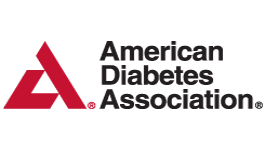Nutrition Strategies for Addiction
By: Dr. Keith Kantor, CEO of NAMED Program
When overcoming addiction, a comprehensive nutrition plan will contribute to the success of any rehabilitation program, so the patient can get back to a normal life with their family and career. A credible nutrition program implements the nutrition plan initially only in the controlled environment of an addiction and rehabilitation center, we recommend this to ensure a successful outcome of any nutrition program.
The number one objective of a nutrition plan during the rehabilitation phase of addiction recovery is avoid stimulating the opiate receptors. Opiate receptor is defined as cell membrane receptors that can bind with morphine and other opiates; concentrations of such receptors are especially high in regions of the brain having pain-related functions. When these receptors are stimulated the brain often craves addictive substances such as drugs, alcohol and even certain foods. If the opiate receptors are suppressed this will increase the success of addiction rehabilitation.
These foods should specifically be avoided because they have been shown to stimulate opiate receptors:
- Simple sugars
- Artificial sweeteners
- Gluten
- Milk protein
- Caffeine
The second objective is to keep inflammation down through both nutrition strategies and the consumption of high quality stable alkaline water. The typical American diet is packed with sugar and processed foods, which throws off the body’s ability to optimize your pH. Although the body naturally has its own mechanisms to buffer pH, many of us are likely living in a state of low-grade acidosis from consuming excessive caffeine and eating too many low-quality processed, depleted foods. Eating a diet rich in low nutrient processed foods puts the body in a state of mild, moderate or even severe inflammation, inflammation can affect our body’s ability to regulate insulin levels resulting in increased cravings for sugary foods. In recovery, sugary food cravings can often be misread as a craving for the once abused substance due to similar hormonal responses of serotonin and opiate receptors. Optimizing our pH through a balanced and whole food nutrition and hydration plan will reduce inflammation and help avoid cravings, hormonal imbalances and chances for relapses.







